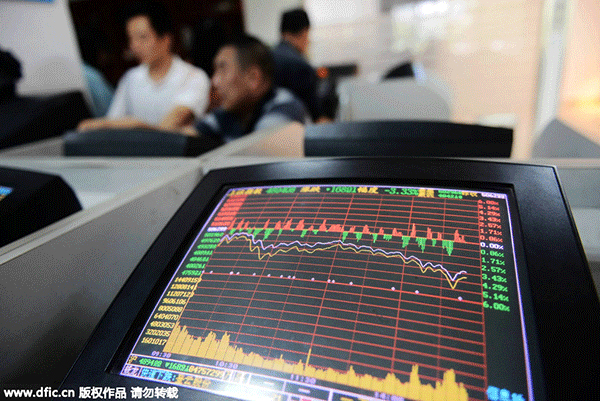 |
|
Investors at a securities brokerage in Qingdao city, Shandong province, Jun 16, 2015. [Photo/IC] |
China's securities regulator appears close to pushing ahead the long-awaited registration-based process for initial public offerings, sources familiar with the matter said on Tuesday.
Under the plan, the China Securities Regulatory Commission plans to shift the IPO approval powers to bourses early next year, the sources said.
Indications that the regulator is keen on fast-tracking the IPO process surfaced after a dramatic capital market rout wiped out nearly $5 trillion in market value between June and August.
The Shanghai Stock Exchange has already completed the process of hiring experts in IPO reviews and approvals, indicating that the bourse is adequately prepared for the IPO approval process, according to sources.
Earlier media reports suggested that the regulator will unveil a detailed plan for the new IPO system as early as this week, drumming up market expectations that the new mechanism will be adopted much sooner than expected.
The shift from an approval-based IPO mechanism to a registration-based one has been considered as one of the most important reforms of the Chinese stock market.
Under the current system, new share sales are subject to approval from the CSRC, which controls both the timing and pricing of the IPOs.
The new IPO system will emphasize information disclosure rather than corporate profitability and will let the market play a bigger role in determining prices.
Most analysts believe that the implementation of a registration-based mechanism would be a gradual process and the regulator will still manage the IPO supply in the initial stages to minimize the negative impact on the market.
About 636 companies are seeking regulatory approval for their IPOs as of Dec 3, according to data from the CSRC.
Gao Ting, head of China strategy at UBS Securities Co, a unit of Swiss financial lender UBS AG, said if the new IPO system results in a flood of new listings, it could weigh heavily on the valuations of small-cap stocks in the short term.
"But in the long run, the new mechanism is a positive development for the Chinese capital market, as it will make fund-raising process much easier for companies, something that will benefit the overall economy," he said.
Zhang Haina, deputy general manager of Zhongyeda Electric Co Ltd, a listed company on the board for small and medium-sized enterprises in Shenzhen, said that "good quality" smaller-cap stocks could withstand the potential pressure on their shares prices after the launch of the new IPO system.
"Smaller companies with promising growth potential and real competitiveness will still be chased by investors," she said.
The launch of the new share sale system will also prompt more smaller companies listed on the National Equities Exchange and Quotations, an over-the-counter share transfer system, to seek listing on the main bourses, experts said.
"Many of them suffer from low market activity and thin turnover. They may consider listing in the main stock exchanges for greater market attention and better liquidity," said an executive of a NEEQ-listed company.
The amendment of China's Securities Law has been considered a precondition for the launch of the new IPO system. The process for the amendment, which is being reviewed by the country's top legislature, was delayed due to the summer market crash.
Some market experts had suggested that the new IPO mechanism could be introduced before the completion of the revision of the Securities Law with a special authorization from the country's top legislature.
But legal experts said that it would go against the spirit of rule of law if the implementation of the new IPO system bypasses the legal process.
